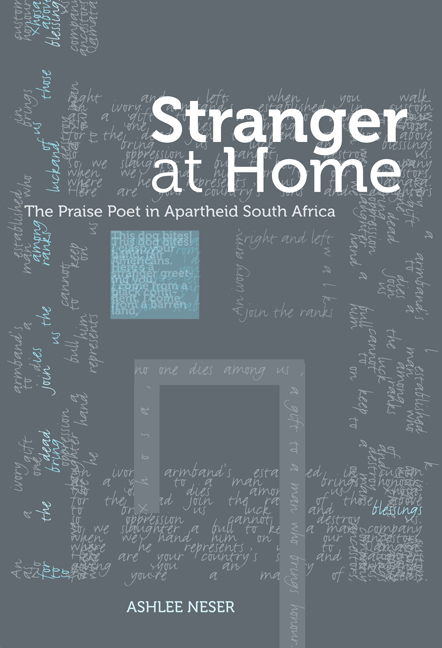two - Print as preservation
from part one
Published online by Cambridge University Press: 17 May 2019
Summary
Manisi's written izibongo invite discussion of what Russell Kaschula calls the ‘oral-literate interface’ (2002). Accounts of oral literature often argue that literacy threatens the practice and value of oral traditions – in very different moments, Albert Lord (1960), Walter Ong (1982) and Jack Goody (1986) have all written in this vein. In the fields of Zulu and Xhosa oral literature, scholars have expressed anxiety about the impact that writing might have on the practice of oral izibongo. In the 1980s, Liz Gunner (1986) asked whether Zulu izibongo as practised among rural communities would continue to be viable given the rise during that decade of a generation of literate urban praise poets, many of whom wrote their poetry before performing it. Kaschula suggests that oral and written Xhosa praise poetry exist simultaneously on a continuum, and that ‘[t]his duality between orality and literacy implies … a cross over period where the iimbongi are not only producing oral poetry, but also writing down their poetry, either in the form of original written poetry or transcribed versions of previously performed oral poetry’ (2002: 66). Kaschula's helpful image of the continuum, according to which various practices of oral genres coexist, appears to be challenged by what is implied by a ‘cross over period’.
Nineteenth-century African history provides us with considerable evidence of the violence of print as a colonial weapon of land appropriation, and of the book as a symbol of the colonial assertion of power over indigenous peoples. However, it is anachronistic to investigate the oral–print confluence in late nineteenth- and early twentieth-century texts from the historical perspective of first contact, even if several of these texts refer to the violent arrival of print among historical oral communities. Terence Ranger reminds us that there is no credibility in ‘the idea of still-existing but separate oral and literate worldviews’ (2003: 238). Even in societies like South Africa where many people are functionally illiterate, the oral and the literate have long since coexisted and interpenetrated. Examinations of the effect of print on oral psychologies and practices, like those by Ong and Goody, focus on the new world which print represents to those for whom writing is a novel concept.
- Type
- Chapter
- Information
- Stranger at HomeThe Praise Poet in Apartheid South Africa, pp. 66 - 99Publisher: Wits University PressPrint publication year: 2011



